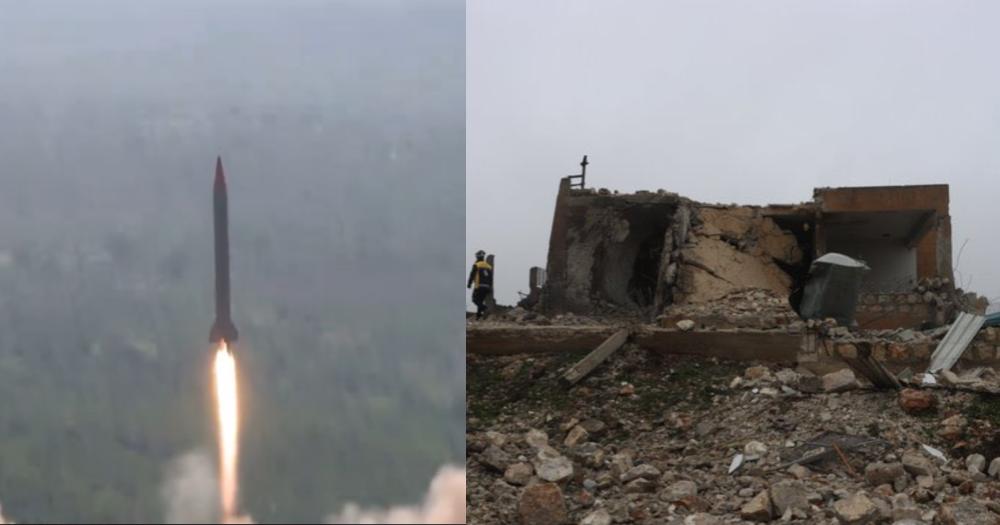Days after Iran fired missiles into three of its neighbouring countries, Syria, Iraq and Pakistan; Pakistan has retaliated by conducting air strikes into Iranian territory.
Missile strikes
The New York Times reported that on Jan. 16, Iran fired missiles into Iraq and Pakistan, claiming to be targeting terrorists in the area.
The next day, Jan. 17, Iran followed up its attacks with a missile strike in Syria.
These attacks come after a Jan. 3 bombing of a memorial event for Iranian Revolutionary Guard general Qasem Soleimani, who was killed by a U.S. drone attack in Iraq in 2020.
According to the BBC, Iran said that the strikes in Iraq and Syria were in retaliation for the bombing, which it said killed 84 people.
Iran claimed that Israel's spy agency Mossad, and terrorist group the Islamic State of Iraq and the Levant (ISIL), were both behind the bombing.
Iraq has called Iran's explanation for the attack “baseless”.
Iraq said that the missiles had struck the home of an Iraqi Kurdish businessman, killing him and his family, including a small child.
Iran bombed 3 countries in the past 24 hours:
Kurdish businessman Peshraw Dizayee and his baby girl, both killed in a midnight IRGC attack inside their home in Erbil, Kurdistan -Iraq.
Bombing a non-functional medical center in the Idlib countryside, Syria.
Bombing sites in… pic.twitter.com/G7sNcdwNsK
— Fared Al Mahlool | فريد المحلول (@FARED_ALHOR) January 16, 2024
It has filed a complaint with the United Nations Security Council over “Iranian aggression”, as well as recalling its ambassador to Tehran.
Syria has yet to respond.
Pakistani retaliation
According to Nikkei, Iran had a slightly different reason for attacking Pakistani territory.
Iran said that an Iranian-origin terrorist group, Jaish al-Adl, was hiding in the mountainous region along the Pakistani-Iranian border, and that its missile strike had been targeting one of its bases.
Iranian Foreign Minister Hossein Amir-Abdollahian, speaking at the world economic forum in Davos, said that Iran had only targeted Iranian terrorists on the soil of Pakistan, and that no Pakistani citizens had been hit in the attack.
He also said that he had spoken to the Pakistani Foreign Minister in order to assure Pakistan that Iran “respected their sovereignty and territorial integrity”.
But Pakistan appears to not have accepted this explanation, with the BBC reporting that Pakistan had called the attacks illegal and warned of serious consequences.
Pakistan said that two children and three other people were injured in the Iranian attack, and on Jan. 18 retaliated with air strikes in Iran's south-eastern Sistan-Baluchestan province.
The BBC reported that Pakistan was claiming to have acted in light of credible intelligence of "impending large-scale terrorist activities".
Pakistan mirrored Iran's explanation, saying that Pakistan fully respected Iran's sovereignty and territorial integrity.
Escalating tensions
Tensions in the Middle East have been growing steadily since the Oct. 7th attack by the Hamas militant group in Southern Israel.
Israel’s retaliation has reached the 100 day mark but no clear resolution in sight.
Houthi rebels in Yemen are using land-based anti shipping missiles to attack commercial ships passing through the Red Sea, purportedly in retaliation for Israel’s actions in Gaza.
United States and United Kingdom forces in the region have responded by conducting air strikes on Houthi bases in the region.
Into this mix comes Iran, who are backers of both Hamas and the Houthis.
International reaction
A spokesman for the United States state department condemned Iran's attack, calling it “reckless”.
We strongly condemn Iran’s attacks in Erbil and offer condolences to the families of the victims. We oppose Iran’s reckless missile strikes and support the Government of Iraq and the Kurdistan Regional Government’s efforts to meet the aspirations of the Iraqi people.
— Matthew Miller (@StateDeptSpox) January 16, 2024
China, who is considered a close ally to both Iran and Pakistan has offered to mediate between the two countries.
China's Foreign Ministry spokesperson Mao Ning was quoted by Al Jazeera as saying that the Chinese side sincerely hoped that the two sides could exercise calm and restraint and avoid an escalation of tension.
China also said that they were willing to play a constructive role in de-escalating the situation if both sides wish.
But Charles Lister of the Middle East Institute in Washington, DC tweeted on social media that Chinese attempts at mediation appear to have broken down.
Very concerning chatter about an escalating crisis between #Iran & #Pakistan tonight, as:
- Both militaries mobilize on the border
- Pakistani fighter jets buzz the Iranian border
- Hurried Chinese mediation breaks down.
All since #Iran’s Jan 16 missile attack on #Balochistan.
— Charles Lister (@Charles_Lister) January 17, 2024
A spokesperson for the Taliban-run government of Afghanistan, which shares a border with both Iran and Pakistan, called for restraint.
The Ministry of Foreign Affairs of the Islamic Emirate of Afghanistan considers the recent violence between the Islamic Republic of Iran and the Islamic Republic of Pakistan alarming, and calls on the two neighboring countries to exercise restraint. pic.twitter.com/NlOQMRSn4i
— Abdul Qahar Balkhi (@QaharBalkhi) January 18, 2024
An expert Al Jazeera spoke to said that Pakistan's response might have been determined by timing, especially in light of its own internal political dynamics.
Pakistan might have preferred a quick de-escalation rather than allowing the situation to linger, but the country is due to hold elections in February 2024.
Its generally unpopular military-backed government is looking to hold on to power after ousting the democratically-elected government of Imran Khan.
Top image by @FARED_ALHOR/X & @zarrar_11PK/X

If you like what you read, follow us on Facebook, Instagram, Twitter and Telegram to get the latest updates.



